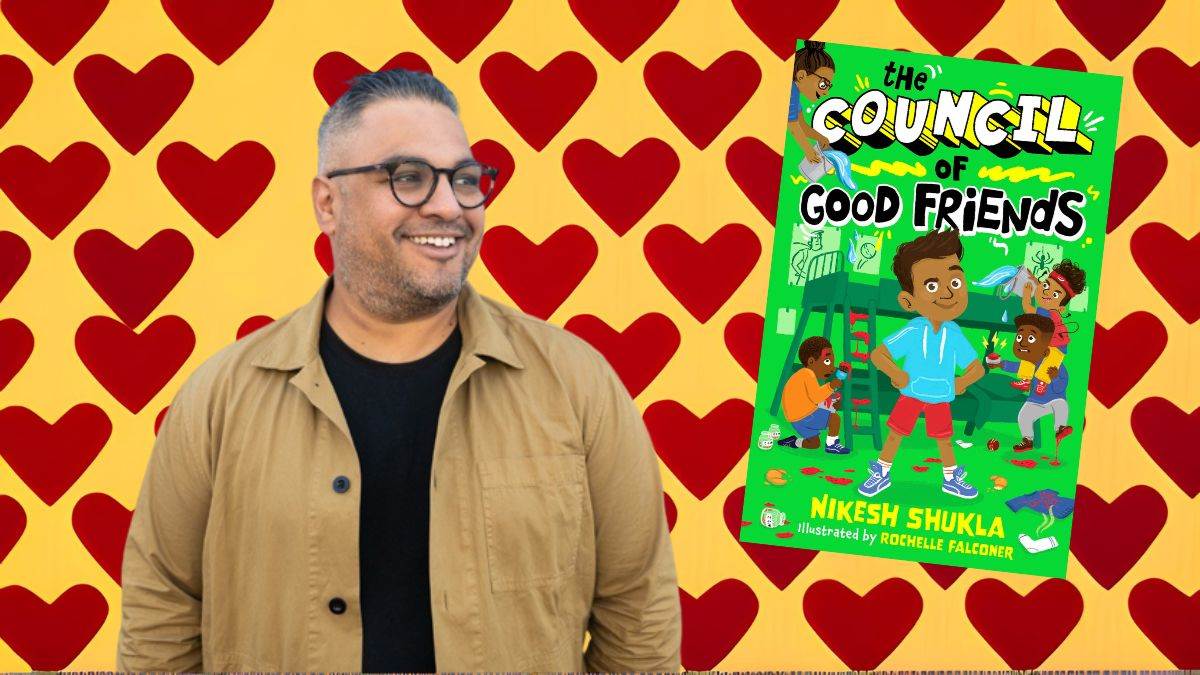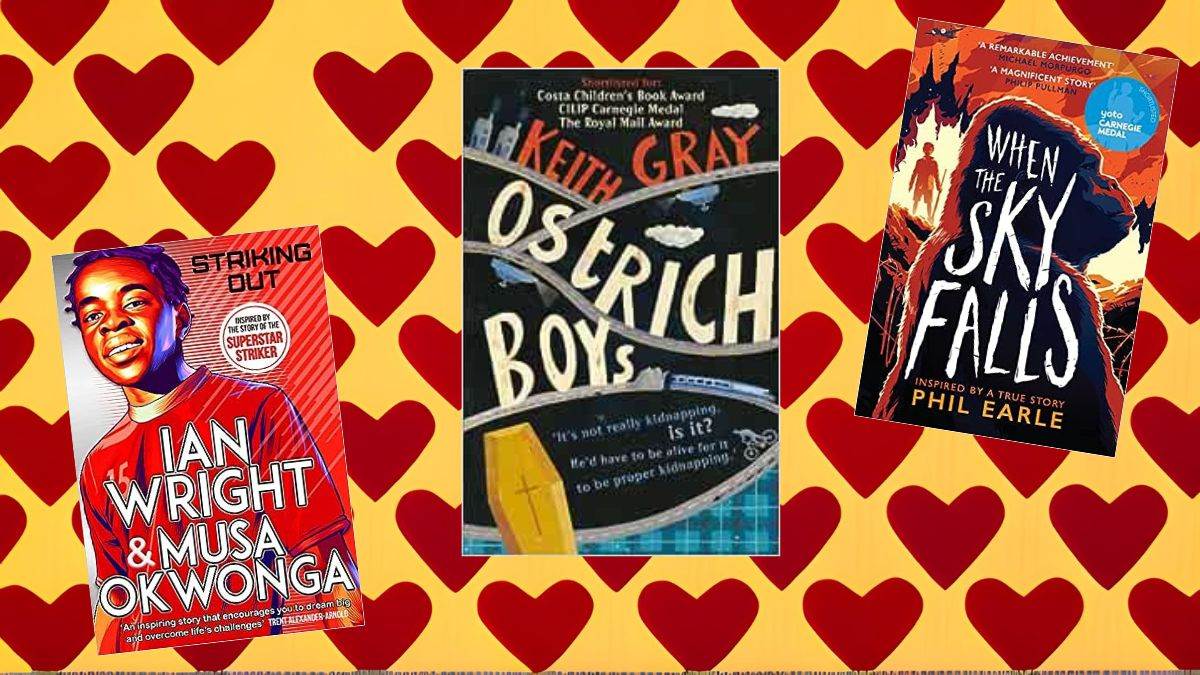Using books to talk about male feelings
Published on: 13 September 2023
Author Nikesh Shukla shares how books can help boys – and all of us – process our emotions.

Last year, after a bereavement, I was in a bad place. I couldn’t read, I couldn’t think, I couldn’t get out of a low mood. I couldn’t regulate my feelings, I couldn’t express what I wanted or needed, I couldn’t sleep. I tried my best to not project that low feeling on to my family but being empathetic sorts, they could all tell I was in a bad place. A close friend had passed, and all I could do was think about how I didn’t check in enough, give him space to talk, give him space to be, judgement free. I was guilty and I was grieving.
One night, as I lay in my daughter’s bed, reading to her, she could tell I was tense and tired and upset. She put down the picture book we were reading and went to her shelf and found a book we had not looked at since she was little, called The Book of Feelings. Each page described an emotion, from shyness to anger to joy to comfort. It ran the gamut of everything I was feeling. Afterwards, she went and found Michael Rosen’s Sad Book and we read it and I cried and she held my hand and curled her head into the nape of my neck, and tears rolled down my face into her hair.
I finished the book, put it away and said good night to her, in the way we always do. I pretend to fall asleep giving her a hug, then we high five, brown five and thwip at each other. Then it’s goodnight.
I sat on the stairs and marvelled at how light I felt. She had found the two perfect books to give me space to express my feelings. Usually, we reserved those books for difficult days for her and her sister. Today, she understood that I needed them too.
I felt unburdened. Momentarily. Because she had reminded me, that it was okay to cry, and it’s totally normal to feel sad. Of course I would, a tragic, tragic thing had happened. I marvelled at the intensity of feeling I felt. I was no longer numb or shutting down, avoiding tears for the supposed benefit of those around me. I felt sad and I was crying and that felt ok.
Writing The Council of Good Friends, it became important to me to show boys showing their feelings. I was concerned that I didn’t see enough books out there, for boys, that showed them to be vulnerable and communicative and forgiving when they annoy each other. Boys who could be soft and sad in front of each other.
The truth is, those books are out there.
[Sidenote: it does frustrate me when people say there aren’t enough books about this, or that, or this, because there are, there always are; maybe you haven’t come across them, or maybe they haven’t been given the promotion or attention of other books. But they’re there. A good librarian, or bookseller, a strong social media community, or the BookTrust website can help you find books about anything for anyone.]
The books are out there and yet the feeling of bottling my feelings up, existing in a state of protecting myself from looking vulnerable, still washed over me. I guess there is something in just normalising in your work the behaviour you wish to see. The Council of Good Friends, a book about masculinity and what it is to be a boy in a male friendship group, isn’t particularly novel or askew; but the more we see it, the more kids can be it. The more they see how the world could be, the more the world bends to become what they know.

One thing I love about Spider-Man, be it Peter Parker, or Miles Morales, or even my own, Pavitr Prabhaker, they’re all in touch with their feelings. They may try and avoid them by Superheroing but they are surrounded by people they can talk to, and that has been ever-present in my life. When I think of Phil Earle’s When The Sky Falls, about a friendship between a boy and an ape, and how it deals with feelings of anger and hopelessness in the face of war and devastation, and it’s masterful at never shying away from the depth of feeling; or The Ostrich Boys by Keith Gray, a devastating book about grief and friendship and loss, that shows that it’s okay to feel sad; or even Musa Okwonga and Ian Wright’s brilliant Striking Out, and its protagonist Jerome’s dreams of football stardom and the reality of his life, there are so many brilliant books out there that give boys the space, language, dialogue and normalcy to process their feelings.
I wish I had come across more of them as a kid. I wish I had possessed the language to ask the right people. But there are definitely so many out there and I am glad to add my own voice to that particular canon.
I will always be thankful for that small human moment from my daughter, where she used a book to help me talk about my feelings. I hope my own work can do the same for young men.
The Council of Good Friends by Nikesh Shukla, illustrated by Rochelle Falconer, is out now.
Topics: Features





